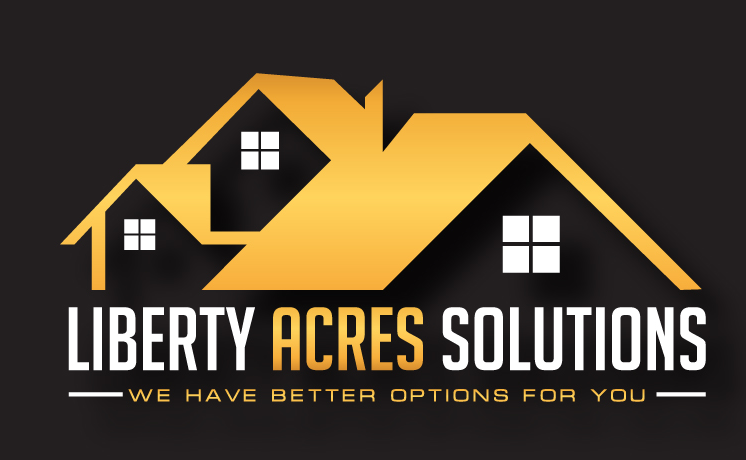Introduction
Facing foreclosure is one of the most stressful situations a homeowner can experience. Among the potential solutions, filing for bankruptcy is often considered. While bankruptcy can provide temporary relief, it’s not always the best option for everyone. In this blog, we’ll explore how bankruptcy works to stop foreclosure, when it might be a good idea, and situations where it’s better to explore alternative options.
How Bankruptcy Affects Foreclosure
When a homeowner files for bankruptcy, it triggers an automatic stay, which immediately stops creditors, including mortgage lenders, from pursuing collection actions, including foreclosure.
This stay provides temporary relief by:
- Halting the foreclosure process.
- Allowing you time to catch up on missed payments (depending on the type of bankruptcy filed).
- Giving you a chance to reorganize your finances or negotiate with your lender.
Types of Bankruptcy and Their Impact on Foreclosure
1. Chapter 7 Bankruptcy
- How It Works: Chapter 7 involves liquidating non-exempt assets to pay creditors. It can delay foreclosure but does not provide a long-term solution to save your home.
- When It’s Useful: If you’re ready to walk away from the property and need time to plan your next steps, Chapter 7 can temporarily halt foreclosure and eliminate other debts, like credit card balances.
- Limitations:
- Does not allow you to catch up on mortgage payments.
- You may still lose your home if you can’t pay the arrears.
2. Chapter 13 Bankruptcy
- How It Works: Chapter 13 allows you to create a repayment plan to catch up on missed mortgage payments over 3-5 years while keeping your home.
- When It’s Useful:
- If you have a steady income and can afford to make regular payments.
- If you need time to restructure your debt and become current on your mortgage.
- Limitations:
- Requires strict adherence to the repayment plan.
- You must continue making current mortgage payments in addition to the repayment plan.
When Filing for Bankruptcy May Be a Good Idea
You’re Temporarily Facing Financial Hardship
If your financial struggles are short-term (e.g., medical bills, temporary unemployment), bankruptcy can provide the time you need to stabilize your finances and catch up on mortgage payments.You Have Substantial Debt Beyond Your Mortgage
Bankruptcy can help eliminate other debts, such as credit card or medical bills, freeing up resources to focus on saving your home.You’re Eligible for Chapter 13 Bankruptcy
If you qualify for Chapter 13, it can be a powerful tool to stop foreclosure and create a manageable repayment plan.You Need Time to Explore Options
Filing for bankruptcy can buy you time to explore other foreclosure alternatives, such as a loan modification or short sale.
When Filing for Bankruptcy Might Not Be a Good Idea
- You Can’t Afford a Repayment Plan (Chapter 13)
If your financial situation doesn’t allow you to make regular payments, filing for bankruptcy may only delay the inevitable foreclosure. - Your Home Has No Equity
If your property is significantly underwater, it may not be worth the cost and effort of bankruptcy to save it. - You Haven’t Explored Other Options
Bankruptcy should be a last resort. Alternatives like loan modifications, forbearance, or short sales can often provide relief without the long-term impact of bankruptcy on your credit. - You’re Filing Solely to Stop Foreclosure
While bankruptcy can delay foreclosure, it’s not a permanent solution unless you have a plan to address your financial situation.
Alternatives to Bankruptcy for Avoiding Foreclosure
1. Loan Modification
Work with your lender to modify the terms of your loan, such as lowering the interest rate or extending the loan term, to make payments more affordable.
2. Forbearance Agreement
Lenders may agree to temporarily suspend or reduce your payments if you’re experiencing financial hardship.
3. Short Sale
If keeping the home is not feasible, selling it for less than the mortgage balance (with the lender’s approval) can help you avoid foreclosure.
4. Deed in Lieu of Foreclosure
You may voluntarily transfer ownership of the home to the lender to avoid the foreclosure process.
Pros and Cons of Filing for Bankruptcy to Avoid Foreclosure
Pros:
- Immediate relief from foreclosure due to the automatic stay.
- Can help eliminate other debts and provide financial breathing room.
- Chapter 13 allows you to create a structured repayment plan.
Cons:
- Bankruptcy negatively impacts your credit score and remains on your credit report for up to 10 years (Chapter 7) or 7 years (Chapter 13).
- Legal and filing fees can be expensive.
- Requires strict adherence to repayment plans and court supervision.
How We Can Help
At We Have Better Options 4 U, we understand how overwhelming foreclosure and financial hardship can be. Our team specializes in exploring foreclosure alternatives tailored to your situation. Whether it’s negotiating with lenders, evaluating bankruptcy options, or finding other creative solutions, we’re here to guide you every step of the way.
Conclusion
Filing for bankruptcy can be a viable option to avoid foreclosure, but it’s not a one-size-fits-all solution. It’s essential to weigh the benefits and drawbacks carefully and consider alternatives before making a decision.
If you’re facing foreclosure and need expert advice, reach out to We Have Better Options 4 U today. Let’s work together to find the best solution for your unique circumstances and protect your financial future.
